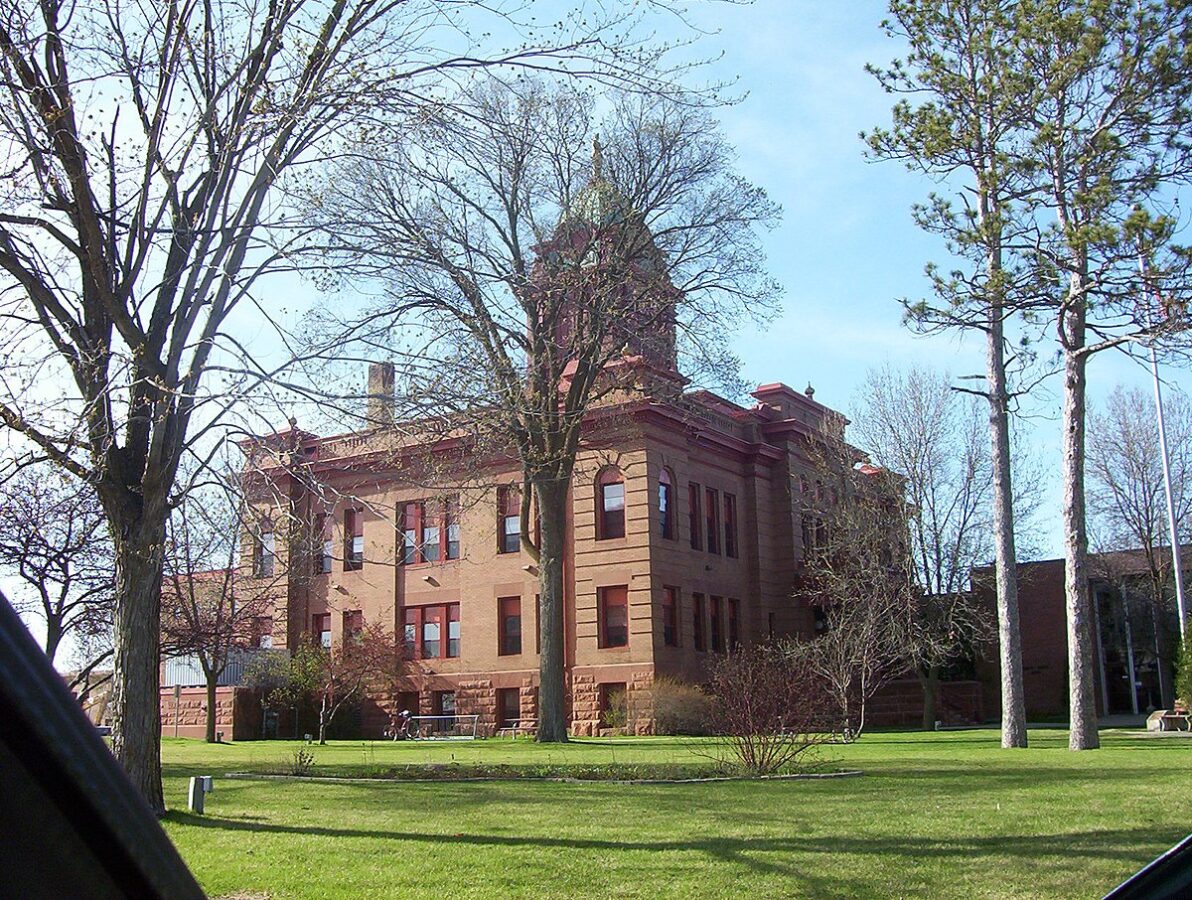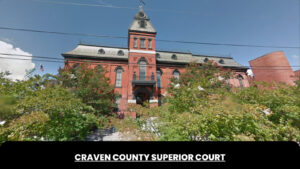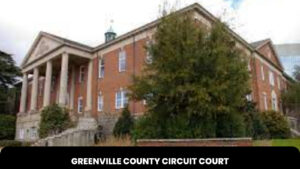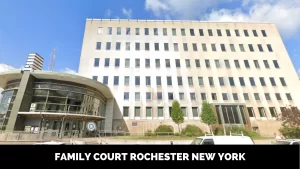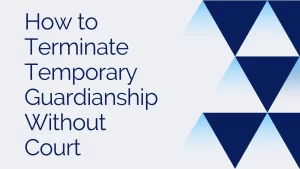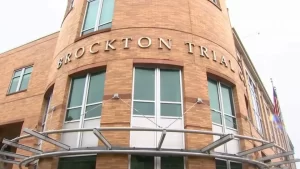Beltrami County District Court
Time
Working Hours:
Mon-Fri 8 a.m.-4:30 p.m.
Saturday: closed
Sunday: closed
Connect with a Attorney
History of the Beltrami County District Court
The Beltrami County District Court has served the Bemidji, Minnesota area since the county was established in 1866. As one of Minnesota’s 10 judicial districts, it is part of the state court system overseen by the Minnesota Supreme Court. The courthouse was originally located in the town of Bemidji until the current courthouse at 619 Beltrami Ave NW was constructed in 1998.
Jurisdiction and Location
The Beltrami County District Court handles civil, criminal, family, and probate cases arising within the county. It has county-wide jurisdiction over misdemeanors, gross misdemeanors, and civil cases under $15,000. Felonies, real estate matters, and major civil cases are heard before the court as well. The main courthouse is located in downtown Bemidji, with judge’s chambers and courtrooms occupying the upper floors.
Court Organization and Staffing
The chief judge oversees court administration and assignments. There are currently four district court judges and several referees who hear cases. Support staff includes court administrators, court reporters, law clerks, probation officers, and clerical staff. The court also utilizes volunteer mediators and guardians ad litem when needed. Security is provided by county sheriff deputies and civilian court security officers.
Types of Cases Heard
The district court handles a wide range of legal matters. Criminal cases include misdemeanors like DUIs and shoplifting, gross misdemeanors such as reckless driving, and felonies like burglary and assault. On the civil side, the court oversees contract disputes, personal injury cases, employment matters, and professional malpractice suits. Family cases involve divorce, child custody and support, and domestic violence petitions. Probate matters like wills, estates, and guardianships are also filed in district court.
Court Process and Procedures
Whether a case is civil or criminal, certain procedures apply. Initial filings and appearances occur before proceeding to pretrial conferences where issues are defined. The court encourages negotiation and settlement when possible. Most cases resolve through dismissal, plea deals, or agreements prior to trial. Only a small fraction proceed to jury trial, where formal rules of evidence and courtroom procedures apply. Following trial, the judge issues findings and verdicts, which may be appealed to higher courts.
Getting a Case Filed and Scheduled
Initiating a Civil or Criminal Case
The plaintiff or prosecutor begins by filing initial documents, like a complaint or charging statement, with the court administrator. Filing fees apply except for criminal cases. The defendant must be officially served notice before the case can proceed. Plaintiffs can request fee waivers based on financial hardship.
Service of Process
In civil cases, the plaintiff arranges for personal service on the defendant by a process server or sheriff’s deputy. This ensures the defendant receives notice of the lawsuit. For minor offenses, defendants receive a citation from law enforcement. Felony defendants are arrested and jailed until a court appearance. The prosecutor then files a formal complaint.
First Appearances and Arraignments
After filing, misdemeanor defendants appear before a judge or referee for arraignment and to enter a plea. Felony defendants attend an initial hearing where bail may be set. Domestic violence cases necessitate an order for protection hearing shortly after charges are filed. Appearance dates are scheduled for civil defendants to respond to the complaint.
Scheduling Conferences and Trial Dates
Following initial appearances, the court holds scheduling conferences to set key dates for exchanging evidence, filing motions, facilitating settlement negotiations, and the final trial or evidentiary hearing. The court calendar determines when trials can be held, which may take months in complex or felony cases. Priority is given to defendants in custody awaiting trial.
The Trial Process
Jury Selection and Trial Location
A jury pool is randomly selected from county residents to report for voir dire questioning. Attorneys select a 12-person jury (6 for civil trials) to be sworn in. Trials typically take place at the main courthouse, though high profile cases may use alternate county facilities. Witness testimony and evidence presentation occurs in one of the second floor courtrooms.
Presentation of Evidence and Witnesses
The plaintiff or prosecution presents its case first. The defense then calls its witnesses and evidence, with each side getting opportunities for cross-examination. Witnesses testify under oath, documents and physical evidence are presented, and expert testimony is sometimes used. Hearsay rules govern what can be introduced. The judge makes final decisions on evidentiary issues.
Jury Deliberations and Verdicts
After closing arguments, the jury is sequestered to deliberate in private and reach a unanimous decision. When a verdict is reached, the parties reconvene in the courtroom where the decision is read. Civil verdicts are by a preponderance of evidence, while criminal convictions require proof beyond a reasonable doubt. Hung juries can result in mistrials.
Sentencing Hearings
If convicted, defendants may undergo presentence investigations by probation to gather background for sentencing. Separate sentencing hearings are held where victims and family can provide impact statements. The judge then imposes a sentence within statutory guidelines. Penalties can range from fines to probation to years in prison.
Beltrami County District Court Online Court Resources
Resources for the Beltrami County District Court as well as online resources applicable to courts generally in Beltrami County, Minnesota, and resources applicable to all courts in Minnesota. these online resources are designed to make your life easier.
Searching Court Case Records
Minnesota Court Records
Accessing court records in Minnesota has been made simple with online tools. You can search for criminal, traffic, civil, family, and probate case records and judgments with ease. The online public access system is available around the clock, except for Sundays from 11 a.m. to 2 p.m. for system maintenance.
Minnesota Criminal Case Records
For those interested in criminal history information, Minnesota offers an online database where you can search for arrest records, offenses, convictions, and sentencing details. Additionally, there is a methamphetamine registry search available for specific inquiries.
Dockets, Calendars, and Other Court Case Information
Beltrami County Court Calendar
The court calendar is a schedule of court proceedings on a given day or week. It provides basic information about each case scheduled to be heard by the court. The calendar helps organize the court’s time and caseload. Here are some key things to know about the Beltrami County Court calendar:
Different Types of Calendars
There are different calendars for different types of matters. For example, there may be separate calendars for criminal cases, civil cases, family cases, and juvenile cases. The calendar will specify which type of docket is being scheduled.
Finding the Court Calendar
The Beltrami County Court calendar is posted publicly on the county’s website. It can be found on the Court Administrator’s page. The calendar is typically updated on a weekly basis.
Key Details on the Calendar
For each proceeding, the court calendar will list the case number, case name, presiding judge, the type of hearing scheduled, date, time, and courtroom number. This provides basic info at a glance.
Interpreting Entries on the Court Calendar
When looking at the Beltrami County Court calendar, here are some key things to note about each entry:
Case Information
The calendar will list the case number and plaintiff/defendant or petitioner/respondent names. This identifies the specific case.
Hearing Types
The calendar entry will note what type of hearing is scheduled, such as a motion hearing, status conference, trial, sentencing, or other proceedings. This indicates what will take place.
Location and Time
Each entry will specify the date, time, and courtroom number for the hearing. This logistical information is important for all participants.
Who Uses the Court Calendar
There are a few key groups who rely on and use the Beltrami County Court calendar:
Litigants and Lawyers
Parties in a case use the calendar to know when they need to appear in court. Their lawyers also use it to track schedules and proceedings.
Court Staff
Court clerks, administrators, bailiffs, and judges rely on the calendar to coordinate schedules and courtroom assignments.
General Public
The public can observe court proceedings, so the calendar allows them to know what is scheduled.
Why the Court Calendar Matters
There are a couple reasons why the court calendar is important:
Planning Purposes
The calendar allows all stakeholders to plan for upcoming court dates and obligations.
Transparency
By posting the court calendar publicly, it provides transparency into court operations and access to justice.
Forms and Related Information
Minnesota Online Court Forms and Instructions
When dealing with legal matters, having the right forms and instructions is crucial. Minnesota provides an online repository of court forms and instructions, organized by category, making it easy for you to access the documents you need.
Minnesota Self-Help Divorce and Fee Waiver Forms
If you’re navigating divorce proceedings in Minnesota, the self-help divorce and fee waiver forms are invaluable resources. They can assist you in completing and filing the necessary paperwork correctly.
Lawyer Complaint Form
In case you encounter issues with legal representation, Minnesota provides a platform to file a complaint against a lawyer. This ensures transparency and accountability in legal services.
Online Fine Payments
Pay Minnesota Court Fines
For individuals looking to settle traffic and petty misdemeanor fines, Minnesota offers online payment options. Note that this service is available for all counties except Hennepin, and a convenience fee may apply.
Self-Help, Legal Research, and General Information
The following sections provide valuable resources for individuals seeking legal assistance and information:
Beltrami County Child Support
Information about parentage and child support services in Beltrami County is available here, ensuring the well-being of children and families.
Conciliation (Small Claims) Court Information
The Minnesota Attorney General’s Office offers insights into Conciliation Court, also known as small claims court, including procedures, monetary limits, and judgment processes.
Foreclosure Help
If you’re facing foreclosure in Minnesota, this section provides valuable resources, including options, counselors, fact sheets, and information on foreclosure postponement.
Minnesota Child Support Services
The Minnesota Department of Human Services provides information on child support guidelines, enforcement, and general support services.
Minnesota Court Rules
Stay updated with Minnesota Court Rules, including recent amendments, to ensure you’re well-informed about court procedures.
Minnesota Expungement Instructions and Forms
Learn about expunging a Minnesota criminal record through detailed instructions and downloadable forms. Additional tools and resources are also available.
Minnesota Motor Vehicle Information
Access information related to driver and vehicle services, including licensing, registration, fees, and forms provided by the Minnesota Department of Public Safety.
Problem-Solving Courts
Discover Minnesota’s problem-solving courts, offering treatment programs as an alternative to incarceration for certain offenders. This includes Drug Courts, Mental Health Courts, and Veteran Treatment Courts.
County Law Libraries
Find contact information for all Minnesota county law libraries, ensuring access to legal resources when needed.
Definitions of Common Legal Terms
Access multiple glossaries of commonly used legal terms available in several languages.
Legal Information and Legal Resources
Explore a wide range of legal information in various languages, covering topics such as family law, housing, consumer rights, employment, disability, and more. Additionally, access do-it-yourself forms and links to legal assistance.
Minnesota Laws
Effortlessly search Minnesota Statutes by section number or keyword, or browse the table of contents by chapter and section.
Minnesota Legal Information and Self Help Resources
Find comprehensive legal information in Minnesota, including guidance on family law, small claims court, landlord-tenant matters, representing yourself in court, and more. Access video tutorials, advice clinics, and additional self-help resources.
Minnesota State Law Library
Learn about the Minnesota State Law Library’s location, hours, available materials, and services. Discover online legal research tools, legal topics, forms, and more.
Legal Aid, Free Services, and Lawyer Referral
Minnesota Consumer Protection
Gain insights into various consumer protection issues in Minnesota, including charity solicitation, identity theft, scams targeting seniors, and financial fraud. Find downloadable complaint procedures and forms.
Minnesota Public Defenders
The Minnesota Board of Public Defense offers information about free and low-cost criminal defense representation, along with instructions on applying for a public defender.
Find Free Legal Assistance
Access lists of statewide and local free legal services and court-related services categorized by service area or organization name.
Find Legal Assistance
Explore a list of links to statewide and local lawyer referral services and legal services designed to assist low-income clients.
Lawyer Directory
Search the Minnesota Judicial Branch directory of registered attorneys by name or registration ID. Access a comprehensive list of all lawyers.
Minnesota Lawyer Conduct, Discipline, and Complaint Information
The Lawyers Professional Responsibility Board provides valuable information about lawyer conduct, including instructions for filing online complaints against lawyers, a search of public lawyer discipline decisions, a list of disbarred and suspended lawyers, the Rules of Professional Conduct, and the Board’s opinions interpreting those rules.
Search Free Legal Assistance
Effortlessly search a directory of legal services and court-related organizations by location and legal issue.
conclusion
In conclusion, the Beltrami County District Court and the broader legal system in Minnesota offer a wealth of online resources to empower individuals with information and assistance. These resources ensure that justice is accessible to all, and they play a vital role in promoting transparency and accountability in the legal process.
If you’re looking to navigate the legal landscape in Beltrami County or Minnesota, these online resources are your key to understanding, accessing, and utilizing the tools available to you.
FAQs About Beltrami County District Court
How can I get case records or file documents?
Court records are available at the courthouse or online through the Minnesota Trial Court Public Access system. Filings can be submitted in person or mailed to the court administrator’s office.
What are court fees for filing and copies? Filing fees start at $100-300 depending on the case type. Copies are $1 per page. Waivers may be granted for low income parties.
Can I bring my children to court? Children are generally not allowed in courtrooms during proceedings. Call ahead to inquire about child care options for required appearances.
What should I wear to court? Dress professionally and appropriately. No shorts, hats, revealing clothing, or offensive messages are allowed. Turn off cell phones and remove hats when entering the courtroom.
Where can I find court forms and guidance on the rules? Self-help guides and all necessary court forms are available on the Minnesota Judicial Branch website. The State Law Library also offers reference assistance.
How can I access court records in Beltrami County online?
You can access court records online through the Minnesota Court Records system, which provides public access to case records and judgments.
What types of cases can I search for in Minnesota’s court records?
You can search for criminal, traffic, civil, family, and probate case records and judgments by various criteria.
Is there a convenience fee for paying court fines online in Minnesota?
Yes, a convenience fee applies for online fine payments in Minnesota, except in Hennepin County.
Where can I find resources for alternative dispute resolution in Minnesota?
You can explore alternative dispute resolution options, including mediation and arbitration, through Minnesota’s ADR programs.
How can I file a complaint against a lawyer in Minnesota?
You can file a complaint against a lawyer using the provided Lawyer Complaint Form and follow the instructions outlined by the Lawyers Professional Responsibility Board.
Q: How far in advance is the Beltrami County Court calendar posted?
A: The court calendar is typically posted about one week in advance, with updates as needed. The calendar is posted on Fridays for the following week.
Q: Where can I find calendars for specific judges or courtrooms?
A: Individual judge and courtroom calendars are not publicly posted. You can contact the Court Administrator’s office for more information on individual judge schedules.
Q: Is the court calendar available in printed form?
A: The Beltrami County Court calendar is only posted online on the county court website. Printed court calendars are not available.
Q: What if a hearing on the calendar gets rescheduled or changed?
A: The online court calendar will be updated as changes occur. However, last-minute changes are always possible, so check with the specific court office for the most up-to-date schedule.
Q: Can I access court calendars for past dates?
A: Past court calendars are not available online or posted publicly. You would need to contact the Court Administrator’s office for any past calendars.

